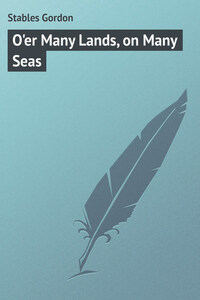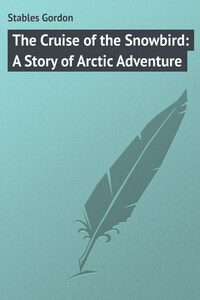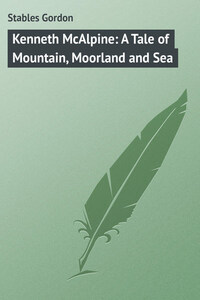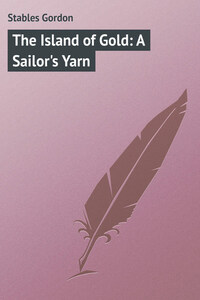“And I have loved thee, Ocean! and my joy
Of youthful sports was on thy breast to be
Borne, like thy bubbles, onward; from a boy
I wantoned with thy breakers – they to me
Were a delight…
For I was, as it were, a child of thee.”
Byron.
Not a breath of wind from any direction. Not a cloud in the sky, not a ripple on the ocean’s blue. Only when a bird alighted on the water, quisling rings of silver formed all around it, and widened and widened, but soon were lost to view. Or when a fish leaped up, or the dorsal fin of some monster shark appeared above the surface, the sea about it trembled for a time, trembled and sparkled as if a shower of diamonds had suddenly fallen there.
And a broad low swell came rolling in from the Indian Ocean, as if the bosom of the sea were moving in its sleep. But landwards, had you looked, you might have seen it break in a long fringe of snowy foam on a beach of yellow sand; and, had you listened, the distant hum and boom of those breakers would have fallen on your ears in a kind of drowsy long-drawn monotone.
The brave ship Niobe (this word is pronounced as if spelt “Ni-o-bee”) slowly rose and slowly fell, and gently rocked and rolled on this heaving tide, and sometimes her great sails flapped with the vessel’s motion, but, alas! not with the rising wind.
No, not with the rising wind, but whenever they moved, the officer who paced up and down the white-scoured quarter-deck, would glance above as if in hope; then he would gaze seawards, and anon shorewards, wistfully, wishfully, uneasily.
Uneasy, indeed, was the feeling on the minds of all on board.
The vessel was far too near the shore, the wind had been dead for hours, but it had died away suddenly, and the glass had gone tumbling down. That it would come on to blow again, and that before long, everyone from the captain to the dark-skinned Kroo-boy was well aware. But from what direction would the wind come? If from the east, strong though the Niobe was, close to the wind though she could sail, well-officered and manned though she was, there was more than a probability she would be dashed to pieces on that sandy beach.
And small mercy could the survivors, if any, expect from the savage Somali Indians, and the still more cruel Arabs, who dwelt in the wretched little towns and villages on the coast. For the ship was here in the Indian Ocean for the avowed purpose of putting down slavery and piracy, and by slavery and piracy those Arabs lived.
It was in the days before steam-power was generally adopted by our navy, when sailors were sailors in reality, and not merely in name.
The crew of the Niobe numbered about seventy, all told fore – and – aft. She carried ten good guns, and an unlimited supply of small arms, cutlasses, and boarding pikes. The timbers of this brave craft were of the toughest teak, ay, and her men were hearts of oak. They feared nothing, they hated nothing, save uncertainty and inaction. All that they longed for was to be accomplishing the object of their cruise.
Had you been on board the Niobe when the wind was blowing half a gale, and the ship ripping through the waves with, maybe, green seas hitting her awful thuds at times, and the foam dashing high over the main or fore-tops, you would have found the men as merry and jolly as boys at cricket. Had you been on board when the battle raged, and the cannon roared, and balls crashed through her sides or rigging, when splinters flew and men dropped bleeding to the deck, you would have found nought save courage and daring in every eye, and calmness in every hand.
But to-day, at the time our story opens, there was neither laughing, joking, nor singing to be heard. The men clustered quietly about bows or fo’c’sle, or leaned lazily over the bulwarks watching the vessel roll – for at one moment she would heel over till the cool clear water could be touched with the hand, and the next she would raise her head or side until a yard at least of her copper sheathing shone in the sunlight like burnished gold.
There was no sound to break the stillness save the far-off boom of the breakers; so quiet was it that the sound of even a rope’s-end thrown on deck grated harshly on the ear, and a whisper could be heard from one end of the ship to the other.
“Bill,” said one sailor to another, biting off the end of a chunk of nigger-head tobacco, “I don’t half like this state of affairs.”
“And I don’t like it either, Jack,” was the reply, “but I suppose we must put up with it.”
“Do ye think it would be any good to whistle for the wind, Bill?”
“Whistle for your grandmother,” replied Bill, derisively.
“Bill,” persisted Jack, “they do tell me – older men, I mean, tell me – that whistling for the wind is sure to bring it.”
“Ay, lad, if you whistle long enough. Look here, Jack, don’t be a superstitious donkey. I’ve seen five hands at one time whistling for the wind; but, Jack, they nearly whistled the whites o’ their eyes out.”
“And the wind didn’t come?”
“Never a breath. Never a puff.”
“Hand in sail!” This was an order from the quarter-deck.














